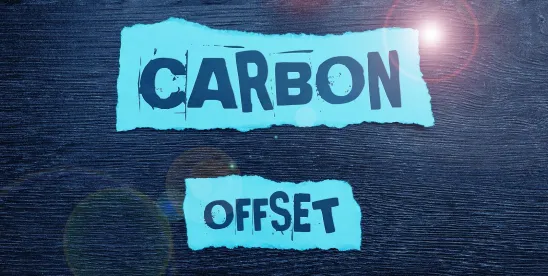Over the last few months, we’ve seen some loud governmental rallying calls to support the scaling of the voluntary carbon market (VCM). With some macro and market-specific uncertainties, these endorsements provide a valuable impetus. The market has been further bolstered by continued endorsements from the size of the credit deals to regulatory scrutiny as well as a roll out of standardised transaction documents.
US Government Backs the Carbon Market
Over the course of the summer, the US government has announced a number of coordinated major endorsements and guidance for the VCM. The Biden administration, the US Commodity Futures Trading Commission (CFTC) and the US Treasury Department have each expressed support for the development of the VCM. The Biden administration released seven guiding principles to boost integrity and scalability in the market (while remaining unregulated) to foster credibility in carbon offsets. Meanwhile, the CFTC provided final guidance to facilitate the scaling of carbon credit trading on derivative markets to enhance transparency and liquidity — with further championing of the VCM set out in an announcement from Deputy Secretary of the Treasury Wally Adeyemo. These coordinated releases emphasize that the US government is prioritising the VCM as well as the private sector’s involvement in achieving climate goals and enabling sustainable economic growth.
UK Government Follows Suit
The UK government has also recently announced plans to consult on reforms aimed at improving the integrity of the VCM. Although a date for a release of these reforms has not yet been announced, Climate Minister Kerry McCarthy confirmed, at Climate Week NYC, that the aim is to strengthen integrity, improve integration with the compliance market, and drive greater private sector investment to achieve climate goals. This move is expected to provide much-needed clarity for market operators, boost investment in carbon removal projects, and help meet long-term net zero targets. How the government tackles the sensitive balance between rolling out guidance and principles whilst maintaining an unregulated market remains uncertain. The endorsement of the market is, however, a clear win — and the degree to which the reforms take the form of non-invasive guidance and principles (as we’re seeing in the United States) will be interesting to observe.
US Prosecutions Brought Against Project Developers
Earlier this month the CFTC, the US Department of Justice (DOJ), and the Securities and Exchange Commission (SEC) announced parallel prosecutions charging a carbon credit project developer and several of its former officers with a scheme to fraudulently inflate the number of carbon credits issued for a number of the developer’s projects.
These cases against carbon credit fraud signal both the US government’s intent to go after suspected fraud in the VCM and a willingness to show leniency toward companies that promptly self-report fraud, remediate the harm, and cooperate in the government’s investigation. The circumstances described in these cases will likely stimulate renewed attention at project developers and VCM certifiers and registries on the standards and methods for internal controls and due diligence in the issuance and qualification of carbon credits for sale.
Registries Scrutinise Projects
Further to the prosecutions detailed above, some of the leading registries have been taking action against project developers suspected of breaching relevant carbon standards. They have identified issues, including insufficient demonstration of additionality, project areas being overstated, and insufficient evidence to confirm the claimed emission reductions. The registries’ actions include demanding that the project proponents compensate for overissued credits. Such actions are a step in the right direction to bring greater transparency and integrity to the VCM.
World Bank — 2024 State of Play
The World Bank recently released their State and Trends of Carbon Pricing: International Carbon Markets (2024 edition). The key 2024 trends identified include:
- Increased demand for high quality credits. Purchasers are becoming more discerning about the quality of carbon credits they purchase. The report notes that projects that have additional environmental or social benefits command a 37 percent premium.
- Significant growth in carbon removal projects, with technology-based carbon removal projects (including DAC and biochar) gaining momentum. In 2024, removal credits, particularly from high-tech solutions, were traded at an average of $200 (compared to $5 to $25 for avoidance credits).
- Blue-chip corporate pledges continue. Major international corporations are increasing their involvement in long-term carbon credit projects. As evidenced by the formation of the Symbiosis Coalition by Google, Microsoft, and Meta, which has committed to generating 20 million tons of CO2 reductions by 2030 through nature restoration projects.
- Development of the legal status of carbon credits. Certain jurisdictions have classified carbon credits as commodities (United States and Canada) and others as securities (Brazil and Egypt). Legal clarity is crucial to market development as it allows businesses to confidently invest in, trade and use carbon credits as part of their environmental strategies.
- Emergence of innovative insurance products for carbon markets are helping to de-risk investments in carbon markets. Insurance against non-delivery, reversal, and invalidation risks is becoming more commonplace, giving businesses peace of mind when investing in carbon credits.
Big Tech Continues to Go Big on VCM
Big tech corporates continue to express their commitment to the VCM by furthering their involvement in long-term carbon credit projects. A significant driver of this is the growth of data centres. Google has reported that an expansion of its data centres has resulted in an increase to its emissions by 48 percent over the past five years and, similarly, Microsoft has stated that its emissions have risen by 30 percent since 2020 and that data centres were the primary cause.
At the same time, Google has set itself a net-zero emissions target by 2030 across all operations. In support of this Google has committed $200 million to a dedicated carbon removal market fund and its latest environmental report details a shift in strategy towards investing in projects that actively remove carbon dioxide from the air (as opposed to avoidance credits). This mirrors the trend identified in the World Bank report that corporate entities are starting to shift their attention to high-quality removal projects.
Further, Meta and Netflix are amongst the entities that have expressed an interest in the US State Department’s carbon credits scheme (known as the Energy Transition Accelerator or ETA), under which local governments or state bodies can earn carbon credits by reducing emissions from their power sector and then sell such credits to corporate entities to help finance the transition to clean energy generation.
Standardised Credit Sale Arrangements
Frontier (a public benefit initiative) has introduced a carbon removal offtake agreement template that is designed to simplify transactions and reduce risks for carbon dioxide removal projects. This template helps align expectations between buyers and suppliers while offering flexibility for startups with flexible terms on project delays and shortfalls. By addressing concerns like financing and accountability without harsh penalties, it encourages more investment in the nascent carbon removal market. This streamlined framework aims to accelerate the growth of CDR technologies and support decarbonization efforts. This adds further template documents to the VCM, complementing the International Emissions Trading Association’s 2023 publication of a comprehensive set of standardised agreements for the sale and purchase of voluntary carbon credits. These terms can provide a common base precedent, and for more bespoke projects, offer a reference point for the balance of risk in negotiations — further enhancing the robustness of the market.




 />i
/>i

